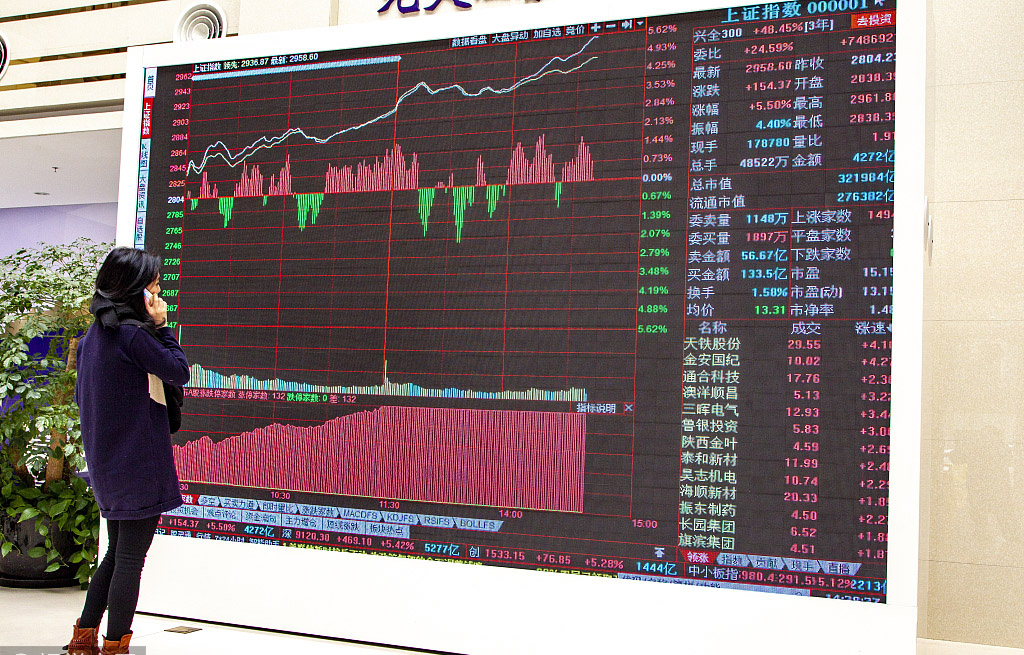Media Report

- CNBC reports, "U.S. President Donald Trump and China's state-run news agency Xinhua both announced 'significant progress' from the last week of trade negotiations. Encouragingly, both sides specifically mentioned the issues of technology transfer, intellectual property protection, currency, services and agriculture. Still, the U.S. and China will need to overcome significant hurdles if they're to ink a deal resolving their long-term disagreements. Trump said in a Sunday evening Twitter post he would delay an increase in tariffs on Chinese exports to the U.S. that was originally scheduled for March 1. 'Assuming both sides make additional progress, we will be planning a Summit for President Xi and myself, at Mar-a-Lago, to conclude an agreement,' Trump tweeted. 'A very good weekend for U.S. & China!' Chinese stocks rallied following the news."
- The Washington Post reports, "Two-thirds of American companies operating in China have experienced disruptions to their business as a result of the protracted trade war between the world's two largest economies, according to a survey by the American Chamber of Commerce in China released Tuesday. Still, there remains general support for President Trump's tough approach to dealing with Beijing, with a narrow majority saying that the tariffs should remain in place or be increased while negotiations to forge a trade deal continue. 'There's a very strong feeling in the business community of hope that the negotiations will lead to some really concrete outcomes and put us on the path where the business environment will continue to improve in very meaningful ways,' said Tim Stratford, a former assistant U.S. trade representative who is now the chairman of AmCham in China."
- CNBC reports, "The brewing technology battle between the U.S. and China isn't just about 5G telecom equipment Chinese companies want to bring to the U.S. It's already starting to bleed into other tech categories, as shown in a new letter posted Monday from 11 senators and top officials from the departments of Energy and Homeland Security that called for a ban of Huawei-made solar technology. The letter sets the U.S. up to not only block smartphones and telecom equipment from Chinese companies such as Huawei, but nearly all tech it sees as a potential security threat. The authors of the letter, including DHS Secretary Kirstjen Nielsen and Energy Secretary Rick Perry, say Huawei's 'smart' solar grid products, which include control systems called 'inverters' that are capable of connecting to the wider electrical grid, present a danger to 'critical U.S. electrical systems and infrastructure.'"
Calendar
- 2019-02-25 Trump Delays a Tariff Deadline, Citing Progress in China Trade Talks
- 2019-02-24 Trump Delays a Tariff Deadline, Citing Progress in China Trade Talks
- 2019-02-22 Saudi Arabia strikes $10 billion China deal, talks de-radicalisation with Xi
- 2019-02-21 U.S., China sketch outlines of deal to end trade war - sources
- 2019-02-20 Trump Eases Off Hard Deadline for China Tariffs
- 2019-02-19 US, China resume trade talks in Washington ahead of deadline
- 2019-02-18 UK spies think they can handle Huawei in 5G networks. The US doesn't agree
- 2019-02-17 China's new trade offer is better than a tariff war
- 2019-02-15 China and US will continue high-stakes trade talks in Washington next week
- 2019-02-14 Top U.S. trade envoys to meet China's Xi, no decision on deadline extension
News
- CNBC Chinese stocks rocketed higher on Trump's trade tweet, but a deal isn't a sure thing
- The Washington Post U.S. businesses in China say the trade war is hurting — but still support tariffs
- CNBC The US government just made clear it's going after more types of Chinese tech than we thought
- Reuters China central bank to encourage innovation in financial markets this year
- The Hill US allies buck Trump on Huawei
- CNBC 'We don't do bad things': Huawei says there is no evidence supporting US spying claims
- Forbes China's Promise On Forex Likely Led To Trade Truce Extension
- CNBC As the US and China tangle over Beijing's treatment of foreign firms, many companies see progress on intellectual
- Reuters U.S. asked China for lower ethanol tariffs: agriculture secretary
- Forbes U.S. Senators Demand The Ban On Huawei Goes Beyond 5G To Include IoT
- Bloomberg Up $1.4 Trillion, China's Stock Rally Is Nearing a Big Hurdle
- Reuters Saudi Arabia to boost oil exports to China with strategy shift
- Bloomberg A New Challenger Enters the High-Stakes Battle for China's Coffee Drinkers
- The New York Times Young People Left Behind in China's Snowbound Rust Belt
- Space News Chinese state-owned firms preparing to launch new commercial rockets
Commentary
- The Diplomat China's Rise in the Middle East: Beyond Economics
- The New York Times Trump, Trade and the Advantage of Autocrats
- New Hampshire Business Review Let's end the trade war that is harming NH
- The New York Times A Clash Is Coming Over America's Place in the World
- Forbes Trade War? What Trade War? Enormity Of U.S. Imports From China Revealed In Latest Data
- The New York Times China Isn't Having Enough Babies
- The Guardian Gunboat diplomacy can only harm Britain's relationship with China